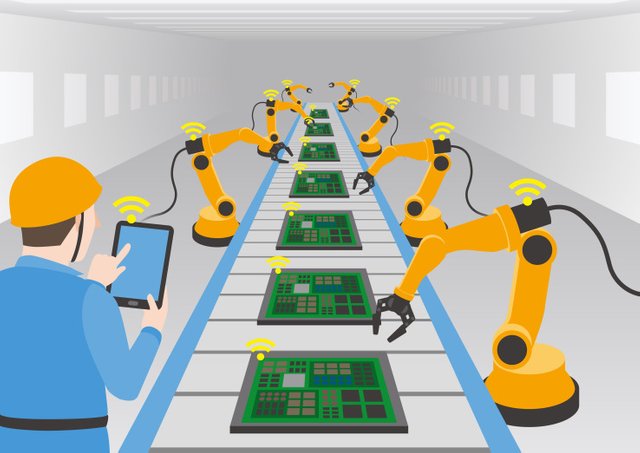Workers in These Five Industries Will Be the First to Lose Their Jobs to Automation

Artificial intelligence is changing the world rapidly, and the global economy will shift to meet the new technology as it always has. That could mean that some jobs will become fully automated, putting humans out of work. There are a few industries that are especially likely to be among the first to feel the impact of automation; several of which employ the majority of people in the traditional workforce today.
Sales
Lead generation is all about accurately profiling online behavior to find ripe opportunities, which makes it an ideal candidate for automation. Businesses like InsideSales.com are popular because they use AI to analyze data and find only the best leads for sales teams to pursue. As the tech improves, the leads will get better, and companies will have to use the services to stay competitive.
Customer Service
By 2020, 85 percent of customer service transactions may be powered by AI and completely free of human interaction. This change comes as AI makes robot interactions feel more authentic thanks to more advanced personalization. For example, DigitalGenius — which creates automated customer service robots — helps businesses automate customer service chats using machine learning and natural language processing to produce friendly, reactionary chatbots that are more cost-effective than humans.
Transportation
Transportation is another area ripe for automation: in 2015, 4.4 million were injured and 38,300 people were killed on U.S. roads, according to the National Safety Council. Delivery drivers, long haul drivers, and public transit drivers are all likely to be affected by advances in AI. Personal self-driving cars should hit the market by 2018, and commercial applications will follow in short order. According to Morgan Stanley, automated cars will save $1.3 trillion annually by 2035 to 2050 in the U.S. alone.
Shipping and Logistics
Beyond self-driving cards, warehousing and basic logistics are prime areas for AI. Logistics problems, like dynamic management of route systems in real-time to improve delivery speeds, and efficient space allocation in shipping containers and trucks, are both ideal for AI applications.
Healthcare and Legal Paraprofessionals
IBM’s Watson has inspired Ross, the first AI attorney. Ross helps choose the most relevant legal solutions from many cases and presents them in natural language. It also provides real-time monitoring for new decisions that could potentially change a client’s case.
AI robots that search databases of medical records and genome sequences have also been inspired by Watson. They search through data to diagnose or find patterns, and are sometimes more accurate than human medical professionals. The Sedasys system from Johnson and Johnson is FDA approved to automatically deliver anesthesia for standard procedure, and a single doctor can simultaneously oversee multiple machines, meaning major cost savings overall.
Tell me guys who has a job which is not related to above mentioned work sectors?
I work as a customer support engineers, so yeah I am fucked) most likely as many of you